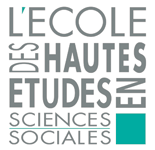Summaries of PhD dissertations
Voices of the Texts, Ways of the Bodies. A Sociology of Evangelical Protestantism
Philippe GONZALEZ
PhD Supervisors: Elisabeth CLAVERIE (EHESS), Jean WIDMER (Fribourg University), 2009
This study is a sociological exploration of Evangelical Protestantism under the perspective of divine and human enunciations. It aims to grasp those enunciations as configuring both the individual religious experience as well as the constitution of the church congregation and, more broadly, of Evangelicalism. The investigation is based on testimonies drawn from an Evangelical French website whose purpose is to evangelize, and on an ethnographic fieldwork done in Evangelical Swiss churches. It appears that there are different ways, for the believers, to relate to God as far as being an Evangelical has to do with hearing God’s voice on an oracular mode, either thru the Bible (Classical Evangelicalism and Fundamentalism), or thru the believer’s body (Pentecostalism and Charismatism). Therefore, this study traces the birth of an ability—the ability to hear God on an immediate basis, and thus the possibility of participating in the life of the congregation—and its obliteration, that is the suspicion that some Evangelicals feel towards divine enunciations as they face conflict in their congregation. At the end, the analysis reveals the effects, on the architecture of the religious collectives, of a spirituality whose typical feature is to postulate God’s immediacy to the believer, and to refuse explicitly any form of institutional mediation.
Appropriation of devices for a local and participative management of water
Audrey RICHARD-FERROUDJI
PhD Supervisor: Laurent THEVENOT, 2008
This dissertation is about devices for a local and participative management of water. These devices include institutional tools such as SAGE (Water Management Plans) and river contracts. Inquiries were conducted on three river basins - Gardons, Lentilla and Orb - using complementary methods and among them an experimental sociology setting, the Concert’eau game. This work shows how devices contribute through their modification to the satisfaction of political exigencies. This result meets the actors worrying about “appropriation” of the tools. It is questionned through pragmatic regimes theory which makes possible to identify necessary changes for the devices to contribute to local and participative management of water. Appropriation is a mutual shaping dynamic involving humans and things. Strategic appropriation is only one dimension of the changes. Appropriation also necessitate that the device is familiarized and developing an equipement involved in the legitimation of decision and participation according to comon goods. This thesis tackles a current underestimated issue of participatory processes: how do people cope with the plurality emerging within collective decision and how do they face the issue of composing it in the decision making processes. It paves the way for improved political and social equipment dealing with water by taking into account diverse participation formats. It discusses conditions of exploratory engagement in gaming situations, articulation of justification with other pragmatic regimes and of political models dealing with intimate relations to the river.
Keywords : Water management ; participative democracy ; local ; collective décision ; pluralism ; experimentation ; engagement ; game
Work dispersion situations
Caroline DATCHARY
PhD Supervisor: Laurent THEVENOT, 2006
This research questions work dispersion situations defined as situations where the worker must face numerous engagements in a short span. With this new descriptive category, we can analyse how the worker make arrangements to cope with the decline of the most prescriptive forms of planning. The efforts made by the worker often remain invisible whether in the organisations or in the literature on account of normative conflicts presented in this work.
The approach refers to pragmatism. The empirical inquiries compare four complex work situations : traders in dealing rooms, works foremen in sanitation , workers of agencies specialized in organizing events and research managers. The considerable discrepancy between these work situations is essential to put to the test the fertility of this new descriptive category and enable us to tackle the issue of dispersion through multiple dimensions.
This comparative analysis puts the light on work behaviours scarcely documented in the literature. As this research is exploratory, it does not produce results that can be easily generalized. Nevertheless, it contributes to various important themes of work sociology such as ICT, time, coordination, skills or work intensification. It also has epistemological implications since it deals with pragmatic versatility and the way a person integrates multiple short-term « engagements ».
Keywords: dispersion, work, skill, work intensification, uncertainty, ICT, pragmatic sociology, coordination.
The Normal School. Disciplines, Pedagogies and Politics
Romuald NORMAND
PhD Supervisor: Laurent THEVENOT, 2001
This work reconsiders the question of normality in pedagogies and the way in which the school standards work out a compromise between instrumental rationalization of teaching and aims of justice. By describing the history of moral and rational student equipment since XIXe century, it studies standardization in the field of education and training. The second part is devoted to a comparative analysis of the pedagogies, beetween tradition and modernity, in their account of normality and ethics. If tradition is concerned by rules, modern theories gived some importance for child’s attachment to his environnement. They make it possible to question the form of standardization in actual teaching devices and the disciplinary tensions in the classroom.
One case is enough A sociological study of future involvement in biomedicine.
Didier TORNY
PhD Supervisor: Luc BOLTANSKI, 2001
This study deals with future victims as sociological figure, both individual and collective, studied through three fieldworks (genetic diseases, HIV/AIDS epidemic, prion diseases). By analyzing alerts, controversies and affairs on these fields, variations of temporal modalities engaged by actors facing futures threats have been addressed. Compared with normalized managing of common public health problems (alcohol, tabacco, car accidents), our fieldworks present an outstanding level of incertitude for the future. The future disease creates a reversibility space between normality and pathology. Being touched by genes, virus and prions threats is not only extending fate below first somatic symptoms, but also developing a high level of alertness and operations to avoid or limit future threats.
On a larger level, the fostering of a new configuration, a renewing of public health imperative based on future victims, has been discussed. Within this framework, the present number of victims attributable to a practice (car traffic, industrial processes) is less important than the number of potential victims to govern public and private policies, especially through anticipation of trials. Thus, collecting and treating alerts plays a predominant role in public policy (surveillance network, sanitary agencies), codevelopped with tracability systems, building a memory for the future. In front of the development of this vigilance policy, where future keep on colonising present, critics tend to focus less on economic costs of policies which efficiency is impossibly to assess than possible consequences for democratic values (state surveillance, genetic or serologic discrimination).
Les annonces
- Les travailleurs intellectuels à l'épreuve des transformations de l'emploi et du capitalisme. Nouvelles figures, nouvelles classes ? Parmi les tendances caractéristiques du capitalisme contemporain, les sciences sociales mettent souvent en avant d’une part les transformations de la relation salariale vers davantage de flexibilité, d’intermittence et d’incertitude quant à ses frontières et ses statuts et, d’autre part, la montée en puissance d’une production immatérielle ou cognitive et d’un travail plus « créatif ». L'objectif de cette journée d'études est d’interroger les travaux théoriques ou empiriques qui voient dans ces deux tendances le fondement d’une recomposition des classes sociales, en particulier à travers l’émergence de nouvelles géométries sociales centrées autour de la figure d’un travailleur intellectuel précaire.
- Esprit et société. La philosophie sociale de Joseph-Marie de Gérando Soutenance de la thèse d'Antoine Bocquet réalisée sous la direction de Bruno Karsenti.
- "Une participation éprouvante. Enquêtes sur l'autogestion, le management participatif, la participation citoyenne et l'empowerment" Soutenance de la thèse de Julien Charles réalisée sous la direction de Thomas Périlleux et Laurent Thévenot.
- Gouvernance et participation citoyenne Journée d'études.


